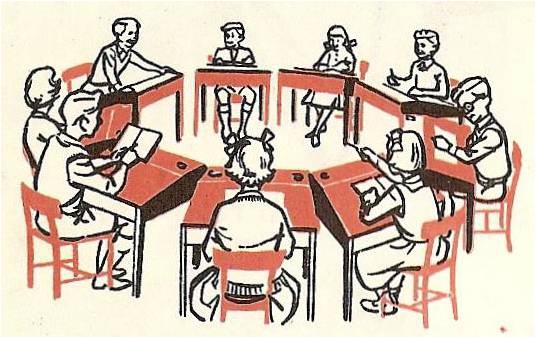Today I just have some thoughts I'd like to share with whomever is reading this. Maybe you're going through the same things, or maybe you haven't stopped to think about them yet.
Preparing online lessons still take longer than presencial ones, even though it's been over a year of teaching exclusively online.
Being a "Teaching Unplugged" enthusiast and having used many of the ideas in the book written by Thornbury and Meddings, I believe a good lesson shouldn't take long to prepare. Also, many of the ideas can be adapted to an online context (maybe I can write a full blog post about it soon). However, teaching young learners at a beginner level has become a challenge for me. Sometimes I think I have too many slides, but when I don't put the "book on the board", they don't understand what I'm saying. This is to say that I feel the need to have a well prepared google presentations slide with all the answers already circled and written, than to "underplan". And it is also important to balance the activities so that they can have things to do without looking at a presentation. Last week we did a miming game and it was a lot of fun.
I'm tired of seeing myself on the screen.
I know I can "turn off" my camera for myself on google meet. However, I like to see if I'm not making "a face", or if my gestures are appearing on the screen. The truth is, sometimes I think I look too tired, my hair is too long - haven't been to the hairdresser in over a year - and my posture is terrible. Last week, my lower back started telling me it needs a holiday. I don't blame it, since I tend to sit like a shrimp on a not so comfortable chair.
I miss the teacher's room.
Teaching online can be quite lonely. Although I have my coordinator and colleagues available at a WhatsApp group to share problems and ask questions, it's not the same as face-to-face interaction. When we are planning a lesson and get stuck, we can instantly ask someone for an idea, or when we are struggling with a misbehaved student and need tips on how to deal with this we can just ask for help. For instance, a few weeks ago I had to go to the school to sign some papers and had the chance to talk to my coordinator about an specific group that was weak and the material wasn't helping. She promptly sent a message to the director and arranged an online meeting with someone who could give us a workshop about how to adapt the course book we were using because apparently other teachers were having the same problem. And this was something I had been postponing to send her a message about it because I thought the issue was specifically with my group or my rapport with them.
I hope to be vaccinated soon
Here in Brazil the vaccination rate is slowly going up, we're at 10% of the population who have received both jabs. I should be vaccinated soon and I hope to be back to presencial teaching next semester. However, I believe I will give my availability to keep teaching online, as I think many students will still prefer to continue away from the classrooms. This is especially true for one-to-one learners, as the difference between the two modes is very little.
Anyway, I believe this was all I had to say today. See you next week!













